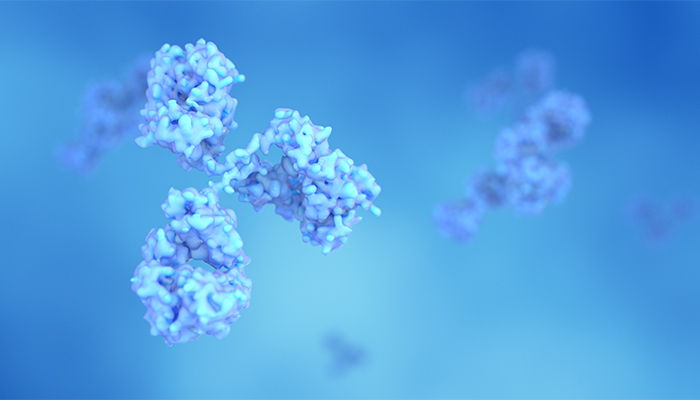HOW CAN WE HELP YOU? Call 1-800-TRY-CHOP
In This Section
Can an Early-life Microbiome Model Help Improve Immune Development?

CHOP researchers model the early-life microbiome to investigate which microbes affect immune system development.
The findings
Researchers from Children's Hospital of Philadelphia and the University of Pennsylvania Perelman School of Medicine found that restricting the intestinal microbiome maturation during the weaning period hinders immune system development and increases susceptibility to neonatal infections such as Salmonella.
Why it matters
Because Salmonella infection is a leading cause of pediatric mortality, scientists sought to better understand post-weaning microbial needs to support immune system development. This work elucidates how the transition from the pre- to post-weaning microbiome contributes to immune system maturation and infection protection. Further, their findings provide an opportunity to create microbial interventions to improve human infants' immune development.
Who conducted the study
CHOP researchers who contributed to the study include first author Jean-Bernard Lubin, PhD, diversity fellow in the Division of Infectious Diseases; senior author Paul J. Planet, MD, PhD, co-director of Microbial Archive and Cryocollection at CHOP and assistant professor of Pediatrics at Penn; and Michael Silverman, MD, PhD, attending physician in the Division of Infectious Diseases at CHOP and assistant professor of Pediatrics at Penn.
How they did it
Researchers developed a nine-member microbial consortium called Pediatric Community (PedsCom) that mirrors the early-life, pre-weaning microbiome. This allowed researchers to study what usually would be a complex system of more than 200 microbes in a simpler context in a shorter amount of time and to identify which microbes influence immune system development.
To determine the effects of pausing microbiome maturation during the pre-weaning period, investigators studied peripheral regulatory T cells (pTregs) and immunoglobin A (IgA), which are hallmarks of microbiota-driven immune system development. pTregs are immune response regulatory cells that are induced by specific microbes and food antigens during weaning and maintain intestinal homeostasis. IgA is a type of antibody that interacts with commensal microbes and helps maintain immune homeostasis. PedsCom-colonized animal models developed fewer pTregs and lower levels of IgA. The researchers suggested that restricting the intestinal microbiome to a pre-weaning state led to a pro-inflammatory environment during infection.
Quick thoughts
"Once we define which microbes are important for healthy immune system development, we can introduce appropriate microbes to children who are missing these microbes and who are at risk for developing diseases that can be prevented by proper immune system development," Dr. Silverman said.
"Weaning is a natural time when the pediatric microbiome changes dramatically as the baby switches from milk to solid food. This critical window of microbiome and immune system development may be an ideal time to introduce microbes that support healthy immune system development. For example, since early life microbes may impact the risk for developing autoimmune diabetes, we are working to identify specific microbes that interact with the immune system to prevent autoimmunity before it takes hold."
What's next
More work is required to identify the specific molecular mechanism by which PedsCom community composition and function leads to stunted immunity and increased susceptibility to Salmonella infection and autoimmune diseases.
Where the study was published
This study appeared in Cell Host & Microbe.


